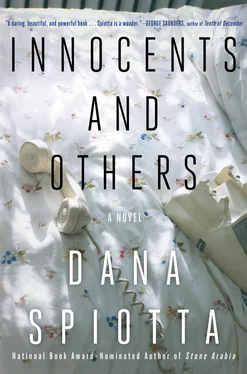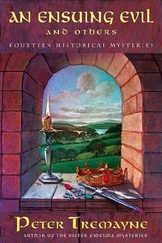“I think you are a fascinating person — you captivated all these big power guys in Hollywood. And then dropped out of it altogether. You are a legend.”
“That’s very flattering, but I am not that fascinating in real life. I think.”
“I doubt that. I really do. You are mysterious, and no one can resist that.”
“Mystery only lasts until I am exposed. I don’t want to be exposed, and I don’t want to be filmed,” she said. “I mean, you can see that was the point of using the phone, right?”
Meadow laughed. This woman was smart.
“Of course,” Meadow said. “Maybe no filming. Maybe we can just do voice recording then? Hmmm. Even film your apartment, your world, but not you? It’s such a good story. And you deserve credit for doing a brilliant deconstruction of male desire, a brilliant confidence game, a great hoax.”
“I don’t think of it that way, a hoax.”
“Maybe that is too hard a word, too public. How would you describe it?”
Meadow proceeded slowly. They agreed to speak again in a few days. Meadow didn’t push her. She talked about her previous films and sent Nicole her videos. She had credibility and would only make something interesting and sympathetic. She flattered the woman but meant what she said.
“I get you,” Meadow told her. “We are alike. You know how to read people. You are an inventor, a story conjurer.” She reassured her that the process was collaborative. Meadow also said (which Meadow of course didn’t mean as a threat but as a statement of fact), “I respect your feelings. It’s fine if you don’t want to do it. I can make a film about it without interviewing you.” Nicole didn’t seem to mind Meadow’s interest, in fact she liked to talk on the phone with her about it, but she would not say yes to the film or even to meeting in person. Meadow’s instinct told her that Nicole didn’t have a lot going on in her life. She knew that there was a good chance if she spent some time with this woman in Syracuse, if she expressed a profound interest in her and her life, she would come around. But Nicole kept saying no. Then the key came: Meadow mentioned that Jack Cusano had agreed to be interviewed.
“You spoke with Jack?”
“Yes, a few times.”
And then Nicole told Meadow she would meet with Meadow in person, if not yet go on camera.
CHILDREN OF THE DISAPPEARED
When she had finished Inward Operator , Meadow felt uncomfortable with the outcome: it wasn’t that things had gone badly for her subjects, but more that she had orchestrated so much of it. She worried that it was too contrived, too forced, too cheesily consequential. So she quickly started something new. In her next film, she wanted to be invisible and not make anything happen.
Meadow and Kyle plunged into researching and planning a new film. They worked from the apartment she had rented in Washington Heights. It was a large and very affordable place, with two bedrooms, a living room, and a dining room. She could see the George Washington Bridge from her living room window if she stuck her head out and looked to the far left. The reason it was so cheap was that it took a long ride on the A train to get anywhere, and the neighborhood was devoid of other people like her, which was fine with Meadow. It didn’t feel like Manhattan at all, it felt like an outer borough with young Dominicans and old Italians. Plus the striving middle-class families that needed more space but refused to leave the city for New Jersey or the suburbs. Meadow felt she had privacy, as though she were in New York and not in New York. She could even park her car on the street and heading upstate was easy: over the bridge and onto the turnpike and 87. She could be in Gloversville in three hours.
She read the tabloid papers looking for things that interested her, and one day she read about the children of the desaparecidos , the people who were disappeared during the Argentine junta’s Dirty War. Meadow was hungry for real stakes beyond trivial American concerns. She didn’t want to have to gin up any drama; she wanted to make a film about life and death, lies and deception. She wrote down the names of the young people interviewed in the article, the ones who discovered that they had been adopted by the very people who had executed their parents. Several of them were attending boarding school in the United States, and she contacted them. All were trying to come to terms with what they had learned about their parents, understanding it but not quite believing it. One girl, Maria Suárez, was willing to be interviewed. She wanted to defend her “father” although Meadow knew a paternity test said he was not her father, and the records showed she was part of the mass abduction of babies. Meadow filmed her as she went about her life, in class, in the dorms, and out with friends. She sometimes talked about her father and his work against the subversives, but Meadow didn’t push it. As she was doing laundry and eating, Meadow stayed with her. She wanted her to forget there was a camera. Meadow did this for a few weeks until the girl trusted her. Then Meadow sat her in a room and gently asked her to speak about the paternity test and what it meant. The girl conceded that her father had done something terrible, and he had lied to her her entire life. She said, tearfully, that you can’t undo a life all at once, and that it was also true that he loved her. Her helplessness and confusion made for a vivid piece of film, her emotional dilemma poignant. After filming her and watching the video, Meadow realized what she was really interested in. Not the poor children, the victims. She wanted the parents. The perpetrators. She had to talk to the parents.
Her father bought her a plane ticket to Argentina and a Mini DV camera she would use by herself (no crew). She filmed the parents in their homes. No interviews, she assured them. Just the house and the stuff and the faces. She showed up each day and quietly filmed everything. But they knew why she was there, why she was interested. So sometimes they did talk, they alluded, they justified themselves to her. Meadow discovered that she didn’t need to ask questions. The camera on a person was itself an interrogation. She stayed with them, and they grew more comfortable. They wanted her to understand. She accrued hours of footage. It was creepily banal, the kids in New York and the “parents” in Argentina talking about ordinary things: the daily routine, plans for holidays, memories of family vacations. Or not talking. Maria’s false father, Colonel Raúl Suárez, who was rumored to have been involved in the infamous “death flights,” showed Meadow his woodworking studio. He was making a bookshelf. He appeared to be an affable, harmless fifty-year-old father and husband. As he worked, he would sometimes speak in slow, careful Spanish, which Meadow mostly understood. He told stupid jokes. He recited poetry. And he talked about how to make perfect dovetail joints. She indulged him, appeared to find him fascinating, and eventually, after many hours of this, he talked about the war years. Obliquely: “that time” and “those people.” Pronouns not names. His sound reasons. His long-cultivated justification. His unimpeachable actions and his unstained conscience. He was free to speak, as the Ley de Punto Final had cleared all but the top junta actors from prosecution. Then came an almost confession, right into the camera: he was proud that the junta had cleared the country of insurgents, and the children of those people got a second chance, a chance to be raised by patriots. Suárez was so calm about it all, and he believed in his own righteousness. She found no gap in his story, no niggle of regret or guilt. He said he was a loving father. He looked the part, acted it, believed it. He could point to the good he had done. Meadow found it riveting: what machines of comforting delusions we humans are. Our language, our words, our ever treading minds and interior thoughts, all of these to make an architecture of lies that even we almost believe. No wonder the world is such a mean place, each of us judging one another without seeing our own terrible cruelties.
Читать дальше












